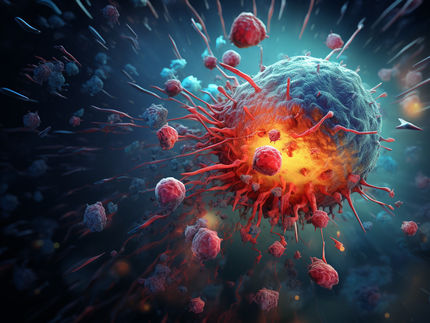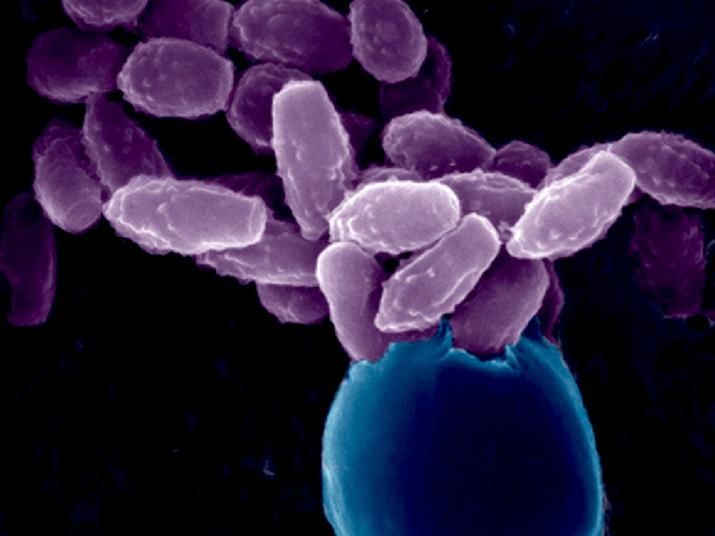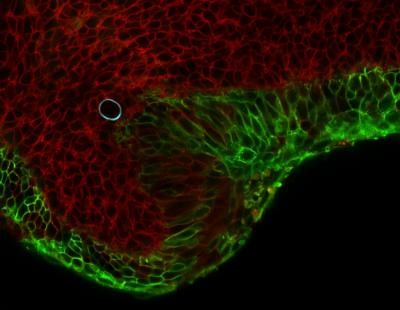Micromet's Blinatumomab Induces Durable Remissions in Patients with Relapsed Non- Hodgkin's Lymphoma
Micromet, Inc. announced the presentation of updated results from a Phase 1 trial of the Company's lead product candidate blinatumomab (MT103) in patients with relapsed non-Hodgkin's lymphoma (NHL). A high objective response rate was maintained among patients treated with blinatumomab using an adapted schedule, comparable to that previously reported in patients receiving constant dosing. Blinatumomab is the first in a new class of agents called BiTE(R) antibodies, designed to harness the body's T cells to kill cancer cells. The findings were presented at the 15th Annual Congress of the European hematology Association (EHA) in Barcelona, Spain.
"Blinatumomab continues to demonstrate a long duration of response in heavily pre-treated non-Hodgkin's lymphoma patients," said Professor Ralph Bargou, Division of Hematology and Oncology, Department of Internal Medicine II, Wuerzburg University Hospital, and the study's principal investigator. "Results of the expanded Phase 1 experience suggest that blinatumomab has the potential to alter the clinical course of disease in patients with a variety of NHL sub-types."
This multi-center Phase 1 study evaluates the safety and tolerability of blinatumomab in adult patients with relapsed non-Hodgkin's lymphoma (NHL). The key objectives of the study are to assess safety and tolerability, pharmacokinetics, pharmacodynamics, and anti-lymphoma activity. Patient response is assessed using the Cheson criteria by independent radiologic review.
Patients initially received blinatumomab at dose levels ranging from 0.5 to 90 micrograms per meter squared per day over a four or eight week cycle. Based on findings in the ongoing study, a new dosing schedule was designed to mitigate the occurrence of neurological adverse events observed at the onset of treatment. Recently enrolled patients received a "step-dose approach" including a lower starting dose (5 or 15 micrograms per meter squared per day) of blinatumomab for one week, with subsequent escalation up to the target dose of 60 micrograms per meter squared per day.
The analysis presented at EHA included 52 patients, mainly with diagnoses of follicular lymphoma (FL) (42%) and mantle cell lymphoma (MCL) (42%). The majority of enrolled patients received three or more prior lines of chemotherapy. Of eight evaluable FL and MCL patients treated with constant dosing at a dose level of 60 micrograms per meter squared per day, 100% (8 of 8) achieved an objective response. The median response duration is 21 months. Three patients currently have ongoing responses ranging from 24 up to 30 months.
Among patients treated using constant dosing, the most common clinical adverse events were pyrexia, headache and fatigue. The most common adverse events were early, transient, fully reversible and did not require discontinuation of treatment. The clinically most relevant cause of treatment discontinuation was neurologic events. These were observed in a sub-group of patients with an identified prognostic factor. All events resolved without sequelae following treatment discontinuation.
Other news from the department research and development
Most read news
More news from our other portals
See the theme worlds for related content
Topic world Antibodies
Antibodies are specialized molecules of our immune system that can specifically recognize and neutralize pathogens or foreign substances. Antibody research in biotech and pharma has recognized this natural defense potential and is working intensively to make it therapeutically useful. From monoclonal antibodies used against cancer or autoimmune diseases to antibody-drug conjugates that specifically transport drugs to disease cells - the possibilities are enormous

Topic world Antibodies
Antibodies are specialized molecules of our immune system that can specifically recognize and neutralize pathogens or foreign substances. Antibody research in biotech and pharma has recognized this natural defense potential and is working intensively to make it therapeutically useful. From monoclonal antibodies used against cancer or autoimmune diseases to antibody-drug conjugates that specifically transport drugs to disease cells - the possibilities are enormous


























































